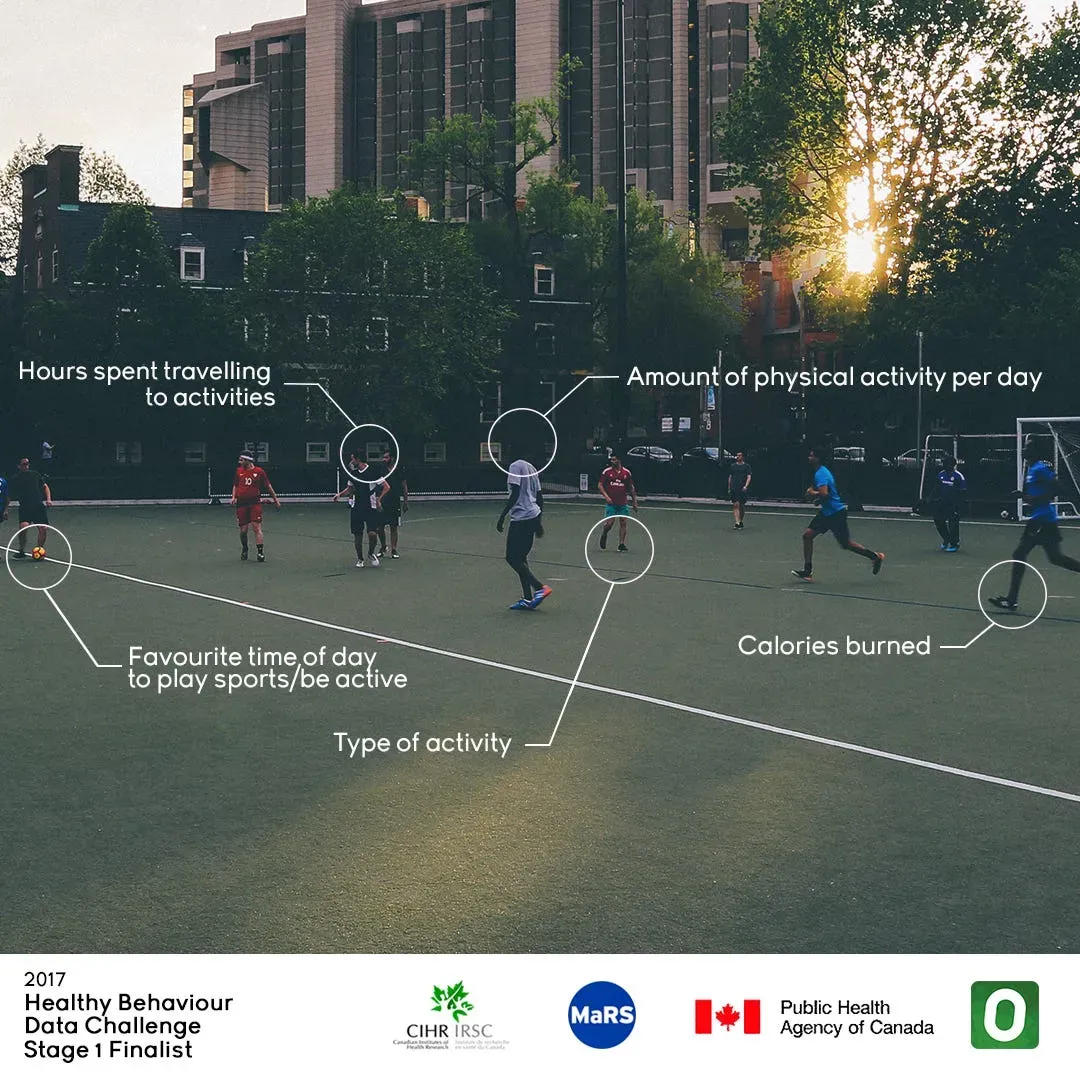
Toronto born sports startup OpenSports Inc. is among nine Canadian teams that have earned their way into a total prize pool of $165,000, by pitching their plan for innovating how to track, monitor, and understand population levels of physical activity through the use of data from their mobile application, OpenSports.
The finalists for the “Healthy Behaviour Data Challenge (HBDC)”, led by MaRS Discovery District (MaRS) and supported by The Public Health Agency of Canada (PHAC), the Canadian Institutes of Health Research, in conjunction with the United States Centers for Disease Control and Prevention, will work with organizational stakeholders to expand the diversity and scope of the data currently used for public health monitoring.
Digital technologies are opening up new ways to collect health data and could potentially revolutionize the way we monitor public health. — Timothy Luk, MaRS
Public health experts traditionally rely on data from online questionnaires, in-person interviews, and telephone surveys to gain insights into a population’s health. When asked about the challenges of outdated data collection methods and sources, the Public Health Agency of Canada expressed, “We are particularly excited about the potential of new and emerging technologies that make use of objectively measured data and real time data since they have the potential to supplement our traditional use of self-reported data collected through national population health surveys.” By teaming up with innovators of all backgrounds, from students, to researchers, to public and private sector institutions, the HBDC will support the development and implementation of novel methodologies and data sources (e.g., wearable devices, mobile applications) to enhance traditional healthy behavior surveillance systems.
In Phase I, OpenSports proposed real time and location based tracking of up to 16 important metrics related to sport and physical activity, allowing researchers to better analyze live health trends and quickly target custom subpopulations. These metrics are derived from pairing OpenSports app player data with existing smartphone and wearable frameworks. OpenSports’ co-founder and former exercise sciences researcher Alicia Luciani notes, “For us where things gets interesting, is in the adjunctive tracking of qualitative and quantitative indicators like favourite locations to be active, time of day that different population groups actively search for opportunities to be active, and how often that transpires into actual activity.” From initial data analyses, some of the findings are surprising. Luciani reports that some players would travel up to 1.5 hours just to play in a pickup soccer game. She notes that this “very clearly highlights the need for more unorganized sports opportunities in a variety of rural and urban spaces.”
Phase II (Prototype Implementation) of the challenge is currently in effect, whereby all nine finalists are invited to test their proposed approaches, and up to three grand prize winners will be announced March 1, 2018. The next 3.5 months for OpenSports will be split into development, testing, and in-field usage. A key Project Manager on the MaRS Data Catalyst team, Timothy Luk, states that, “Digital technologies are opening up new ways to collect health data and could potentially revolutionize the way we monitor public health.” MaRS is looking forward to Canadians developing innovative and homegrown solutions capable of tackling current and future gaps in public health. OpenSports hopes that the outputs from their solution will play a key role in increasing participation, accuracy, and timeliness of future public health surveillance.
Why are we excited? We get to be a bigger voice in the conversation about healthy, active living which brings us closer to our vision of connecting millions of people globally, to more opportunities to be active through sports!!👊⚽️🏐🏈🎾.
Visit us at www.opensports.net to join out growing community of recreational sports players! See you on the pitch:)
❤ Alicia & Your OpenSports fam
Questions? Send them our way: support@opensports.net